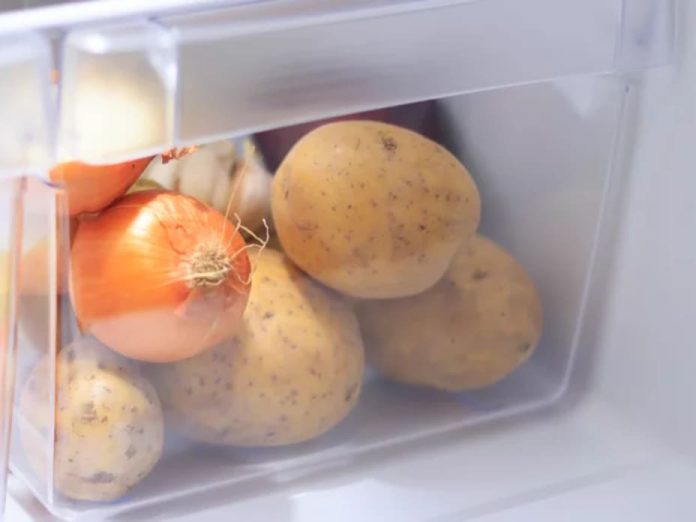Potatoes can be kept in the fridge, experts have said, contrary to common health warnings.
It was previously thought that storing raw potatoes at cold temperatures could turn starches into sugars, not only making them sweeter and darker during cooking but also forming acrylamide, a chemical which increases the risk of several types of cancer.
Until recently, the Food Standards Agency (FSA) recommended that potatoes be stored in a dark, cool place at temperatures above 6C (42.8F).
However, its new research shows that it is safe to store potatoes in the fridge, and that doing so even increases their shelf life.
if you wish to prevent food waste, you can choose to store either in the fridge or in a cool, dark place
Cold storage did not materially increase the formation of acrylamide in potatoes compared with keeping them in a cool cupboard.
Fried, roasted or baked
“We previously advised consumers against storage of raw potatoes in the fridge at home, as it was thought this could lead to the formation of additional sugars (known as cold sweetening) which can then convert into acrylamide when the potatoes are fried, roasted or baked,” updated guidance on the FSA website reads.
“A recent study, which has been reviewed by the committee on the toxicity of chemicals in food, consumer products and the environment, has shown that home storage of potatoes in the fridge doesn’t materially increase acrylamide forming potential when compared to storage in a cool, dark place.
“So, if you wish to help avoid food waste, you can choose to store either in the fridge or in a cool, dark place,” it adds.
Meanwhile, shoppers may be surprised to learn that tomatoes and cucumbers, which are in short supply at supermarkets, should be kept out of the fridge, according to scientists.
Consumer experts said that while 68 per cent of people keep tomatoes in the fridge, they should actually be stored in the cupboard as cold temperatures change the texture and inhibit the enzymes that give them flavour.
“Cold temperatures also cause cucumbers to go mushy inside and bananas to go black so they’re better off on the counter,” experts advised.


